Intranet or Internet? They may sound similar, but they play very distinct roles for businesses. Understanding their differences is key to making the most of what each offers.
The internet and intranet each have specific functions, both influencing how communication, collaboration, and security work within organizations.
Let’s dive into their definitions, unique roles and advantages, and discover how they shape the way companies function!
Feel free to jump around:
- What is the difference between the intranet and internet?
- What is an extranet?
- What is the difference between the internet, intranet and extranet?
- Why do companies use an intranet?
- Internet vs intranet FAQs
- How to build a modern intranet for your company
What is the difference between the intranet and internet?
Accessibility is the differentiator that makes the internet vastly different than an intranet and other online platforms. The internet is a public network, open to everyone, whereas an intranet is a secure network, solely for a specific group, such as a company, enabling internal communications and knowledge sharing among its members.
Let’s define intranet vs internet differences to understand the two.
What is the internet?
The internet is a worldwide system of interconnected computer networks. It’s a public network that allows people all over the world to share information, communicate and access a vast array of resources such as websites, videos, and services.
It’s like a giant web that links everything and everyone together, enabling communication and information sharing on a global scale.
What is an intranet?
An intranet is a controlled private network, generally within an organization, like a company or a school. Intranets are like a closed-off version of the internet, accessible only to specific members or employees of that organization. They’re used for internal communication, sharing files, and accessing resources limited to those within private networks.
Think of a company intranet as a private space for employees. A place to collaborate, share information, and work together without access being open to the public.
What is an extranet?
When it comes to intranets vs extranets, an extranet is an extension of an intranet that allows limited access to authorized people outside your company, such as partners, suppliers, or customers.
It’s a secured bridge between a company’s internal network and selected external users, allowing them to access specific resources, collaborate on projects, or share information within agreed-upon boundaries.
Through an extranet, companies can selectively connect and collaborate with external parties while maintaining strict privacy and security measures.
What is the difference between the internet, intranet and extranet?
In a nutshell, the difference between the internet, an intranet and an extranet is their levels of accessibility. The internet is for everyone, a company’s intranet is an insider’s hub, and an extranet selectively connects company employees with guests.
The internet is a massive global computer network. It links devices worldwide, welcoming everyone to share information and resources openly.
Now, an intranet is an internal platform within an organization, such as a company or school. It’s only for members or employees, ensuring internal communication and resource sharing stay secure among them.
And then there’s the extranet—a bit like a VIP section of the intranet. It permits controlled access to external people like partners or suppliers, securely connecting the organization’s network with specific external users.
Why do companies use an intranet?
Companies rely on intranets as exclusive networks for internal operations. A company intranet is a central meeting point where employees access resources, documents, and tools, which increases teamwork and efficiency.
Intranets keep sensitive company information secure within the organization’s boundaries, but they also come with a whole host of benefits.
Let’s walk through all the reasons why companies use an intranet.
Improve communication
Within the digital space of an intranet, you can do so much with business communication tools! Teams can set up internal messaging systems, discussion forums, and news feeds to share crucial updates and announcements.
Think of it as the company’s exclusive online hangout where employees connect, collaborate on projects, and access vital resources. It’s a dedicated zone ensuring everyone stays informed and connected about all things related to your company.
Enhance collaboration
Companies harness the intranet to enhance collaboration by offering tools and spaces that unite employees on projects and tasks. You can set up shared document repositories, project management tools, and collaborative platforms for teams to:
- seamlessly co-edit documents
- brainstorm ideas
- and synchronize efforts in real-time
Picture it as a virtual workspace—a place where everyone gathers, regardless of their location! This helps nurture teamwork and boosts overall productivity within the organization.
Streamline knowledge management
Businesses rely on the intranet for knowledge management by establishing a central hub accessible to employees. Here, you can access, contribute to, and organize valuable information. Using tools like searchable databases, corporate wikis and knowledge bases, companies store company policies, best practices, training materials, and insights shared by colleagues.
It’s like a digital library! A place where employees can gather knowledge, contribute their expertise and access essential resources to enhance productivity and efficiency.
Boost company culture
Businesses utilize the intranet to cultivate and fortify company culture by spotlighting its values, narratives, and triumphs. You can carve out spaces on the intranet for employees to exchange success stories, acknowledge each other’s efforts, and stay informed about company events and initiatives.
Your intranet should reflect the company’s spirit, promoting transparency, connection, and a sense of belonging among employees. Ultimately shaping, and strengthening the company’s unique culture.
Encourage employee engagement
Intranets boost engagement by offering interactive spaces and tools for participation—designed with employee engagement best practices in mind. With an intranet, you can create forums, surveys, and feedback channels where employees can voice their opinions, share ideas, and contribute to discussions.
Additionally, intranets often host social groups or activities, fostering connections among colleagues. By providing personalized content and opportunities for interaction, intranets encourage involvement so employees feel valued and connected to the company’s goals.
Bring remote workers together
Companies close the gap between remote workers by creating a digital hub where remote employees and frontline workers can access resources, communicate and collaborate. Intranets offer tools like messaging, file sharing, and project management, ensuring seamless remote teamwork.
They serve as a centralized platform for updates, policies, and training, fostering connection and productivity in remote work.
Security measures
Companies use intranets for security by implementing various measures to safeguard sensitive information, including cloud and on-premise solutions. You can use encryption to protect data as it moves within the network and use access controls like passwords or authentication to limit entry to authorized users.
Firewalls and intrusion detection systems act as barriers against threats, monitoring, and filtering network traffic to block potential risks. Regular updates and patches ensure software and security protocols stay current, which addresses vulnerabilities and maintains a secure intranet environment.
Overall, these measures help protect company data and information from unauthorized access or external threats.
Why do companies use the internet?
Companies use the internet to reach a global audience, market their products or services, connect with customers, conduct business operations, and access a wealth of information and resources.
It’s like a giant marketplace and communication hub that allows companies to expand their reach, stay competitive, and efficiently run various aspects of their business.
It’s worth mentioning that employees still require internet access to use most modern cloud hosted company intranets. So, intranet software and an internet connection often come hand in hand!
Communication
Companies use the Internet for communication in various ways. They leverage emails for quick correspondence, video conferencing for face-to-face discussions across distances, and messaging apps for instant team communication.
Social media platforms help in engaging with customers, while collaborative tools enable teams to work together on projects in real time.
Marketing
Companies use the internet for marketing by leveraging various online platforms to promote their products or services. They utilize websites, social media channels, online ads, email marketing, and content creation (like blogs or videos) to reach and engage with their target audience.
The internet allows them to target specific demographics, track performance metrics, and adapt their strategies quickly. With the internet, marketing becomes more targeted, measurable, and adaptable to consumer behaviors.
Why do companies use extranet?
Companies use extranets to securely collaborate with external parties like partners, suppliers, or clients. It’s like a controlled extension of their intranet. Offering a private space for sharing specific information, documents, or resources with authorized external users.
Extranets facilitate communication, streamline collaboration, and enable efficient interaction between the company and its external partners while maintaining strict access controls and confidentiality. Essentially, it’s a way for companies to extend their network securely and collaborate effectively with trusted external parties.
Should I use the internet, an intranet, or an extranet for my organization?
The choice between internet, intranet, or extranet depends on what you need:
- The Internet is for broad global access, great for reaching customers, market research, and general information sharing.
- An Intranet is perfect for internal communications, sharing resources among employees within your organization, ensuring privacy and secure collaboration.
- An Extranet is useful when you need controlled collaboration with external partners, suppliers, or clients, providing a secure space to share specific information beyond your organization.
Consider your organization’s specific needs: if you need public outreach, the internet is key; for internal communication, go for an intranet; and if collaboration with external partners is vital, an extranet might be the way to go.
Often, organizations use a combination of all of these networks to fulfill different purposes.
Intranet vs Internet FAQs
How does an intranet work?
A company intranet works like a private digital clubhouse exclusively for a company or organization’s members. It’s a secure online space where employees access company information, collaborate on projects, and communicate internally. Think of it as a special digital hub accessible only to insiders, like employees and staff. It’s a place for sharing updates, documents, and resources among team members, ensuring everyone stays connected and informed within the company.
How does the internet work?
Internet ownership is governed by individual ownership. There are many computers interconnected via a standard Internet protocol. The device supports wireless and wired communications such as 3G, 4G, WiFi, and Ethernet for transmission and receipt of data. Every device has its own identifier to determine its location in global networks. Each IP address has an DNS server (DNS) that helps you to search the computers in your network. When a user wants to access a particular website or service, they often use a domain name instead of an IP address. The DNS server performs a DNS lookup to translate the human-readable domain name into the corresponding IP address, allowing the user’s device to locate and connect to the target computer or server within the network.
What is the difference between a website and an intranet?
Think of a website as a public library—it’s like a digital space accessible to everyone on the internet. It’s where businesses share information, products, or services with the public.
Now, intranet software is more like a private office—it’s a private digital space exclusive to a specific group, like employees within a company. It’s where insiders communicate, collaborate, and access company resources, all within a secure and private network. Unlike a website, an intranet isn’t for everyone; it’s tailored for the eyes and needs of those within the organization.
Why is it important to understand the difference between the intranet and internet?
Understanding intranet and internet differences is important because they serve different purposes. Intranets tend to be securer and have greater capabilities than public websites, but can only be used within an organization. For this reason, intranets are designed for workplaces and employees, while the internet serves the masses. The only people who can access the intranet are those with proper and secure login credentials, whereas any computer user can connect to the internet with wifi access.
Is A VPN an intranet or internet?
A VPN, or Virtual Private Network, is actually a tool that bridges the gap between the internet and an intranet. It’s like a secure tunnel that allows users to access the internet securely while connecting to an intranet remotely. So, it’s kind of like having a secure pathway within the internet, granting access to an organization’s private network, such as an intranet, even when someone is outside the office.
How to create a modern employee intranet with Axero
Looking for a modern intranet solution?
Step into the world of dynamic workplace efficiency with Axero’s Employee Intranet.
Embraced by countless companies globally, Axero fosters smooth communication, collaboration, and knowledge sharing. It’s a platform tailored for today’s workplace needs—streamlined, intuitive, and designed to enhance your team’s capabilities.
Experience the power of an intranet that aligns with your team’s goals, promoting seamless workflows and efficient interactions.
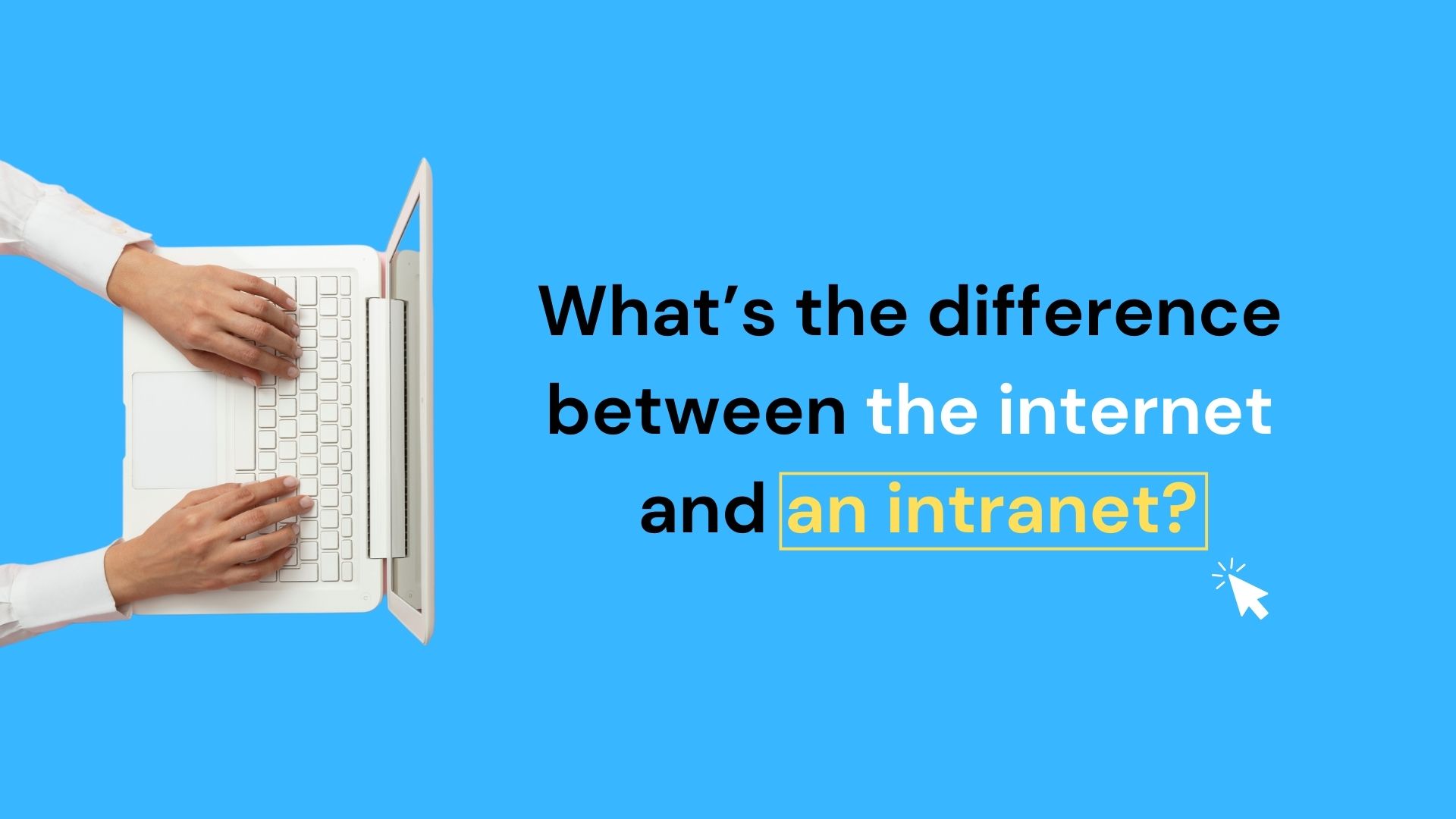
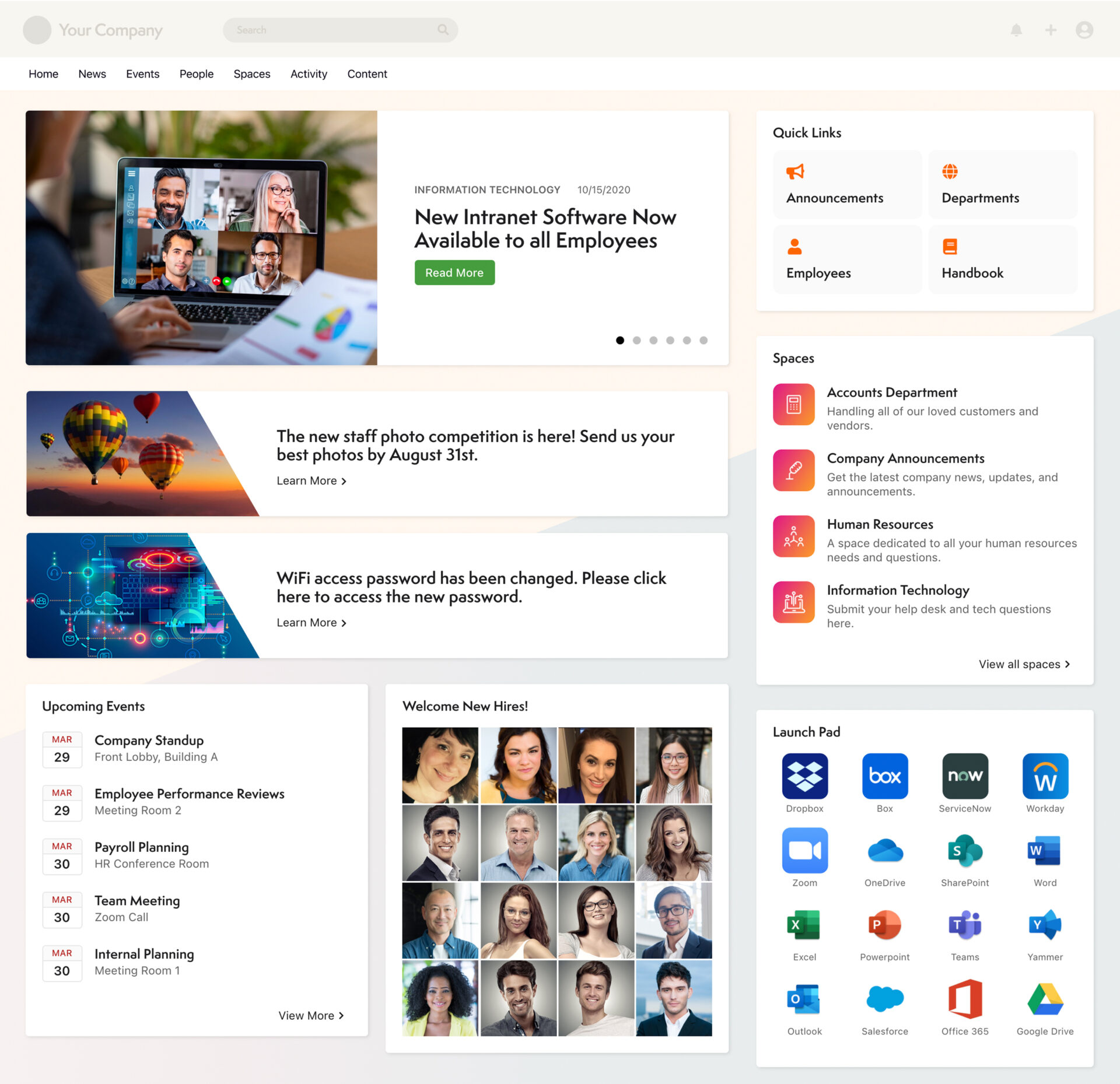

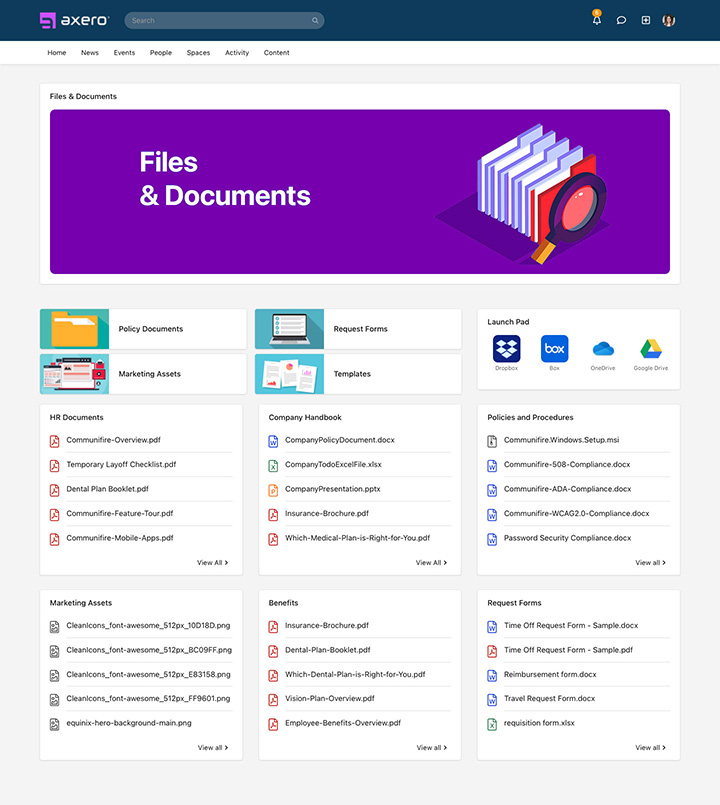
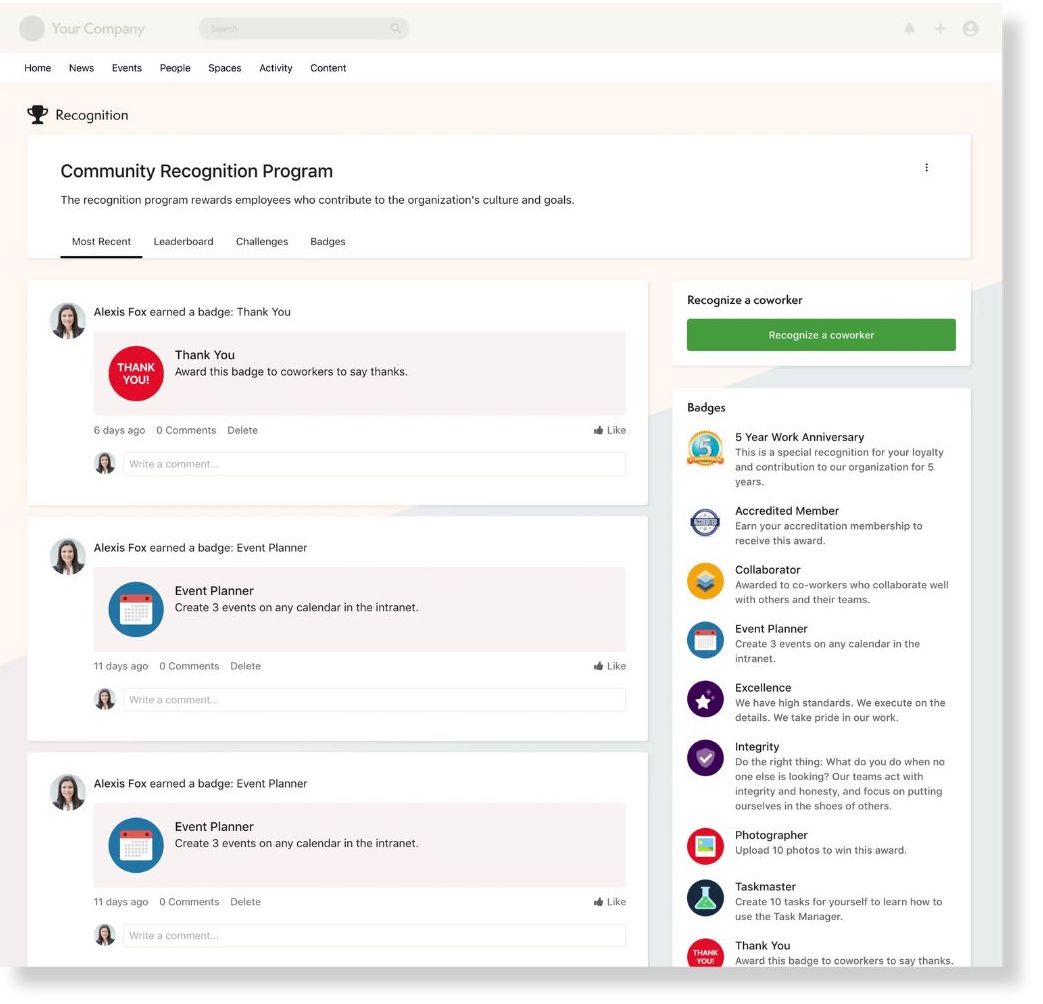



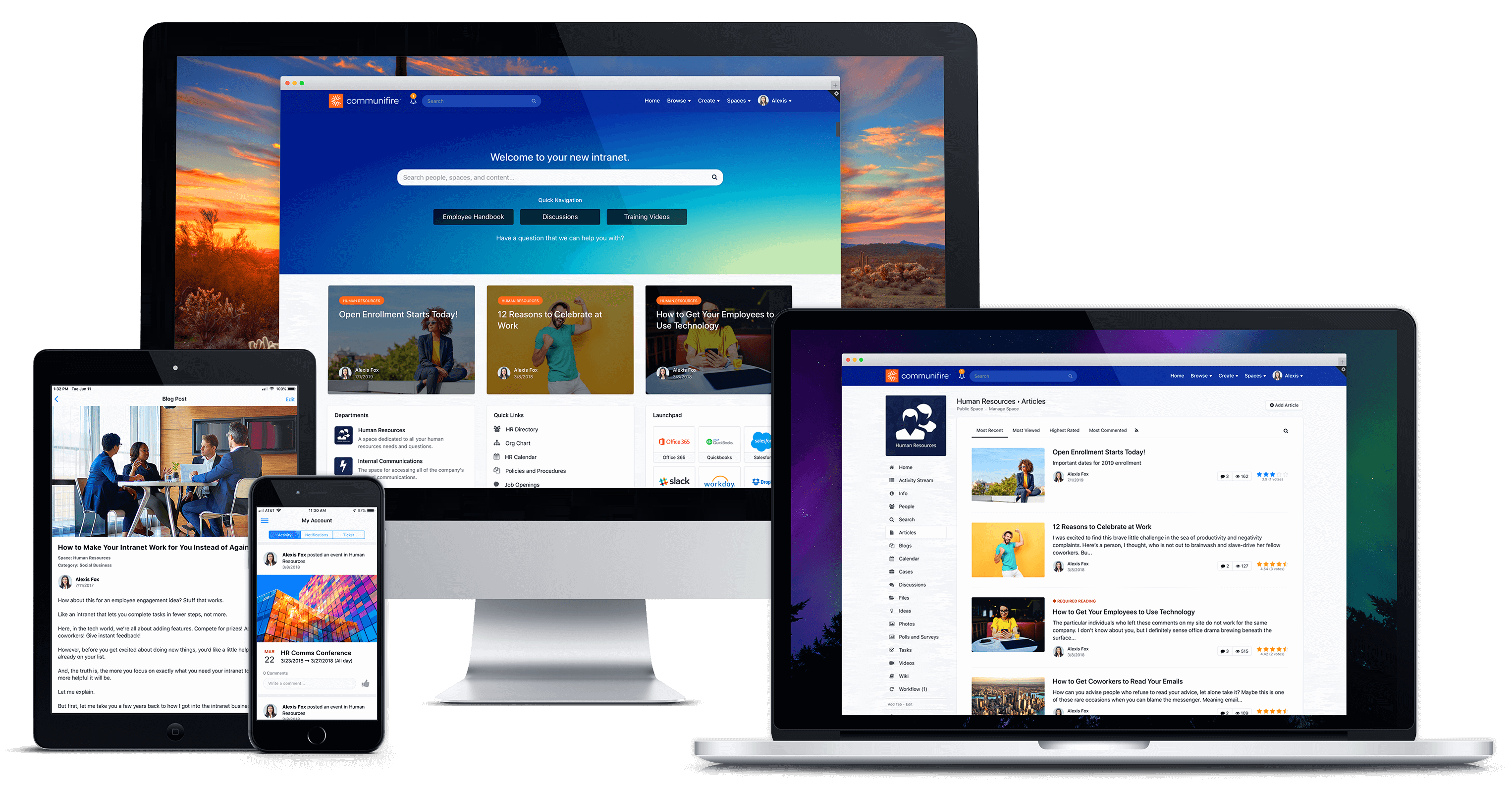


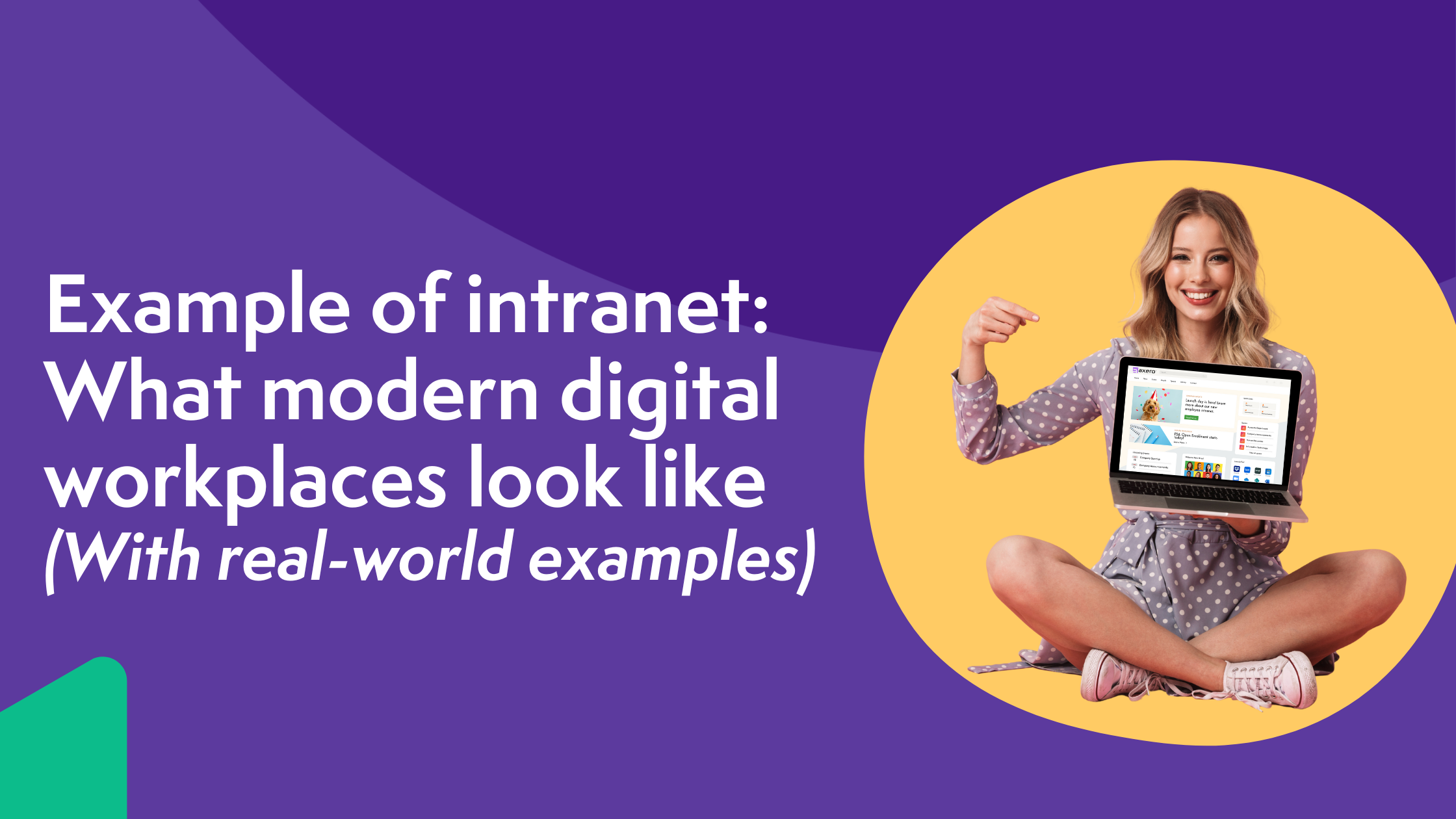
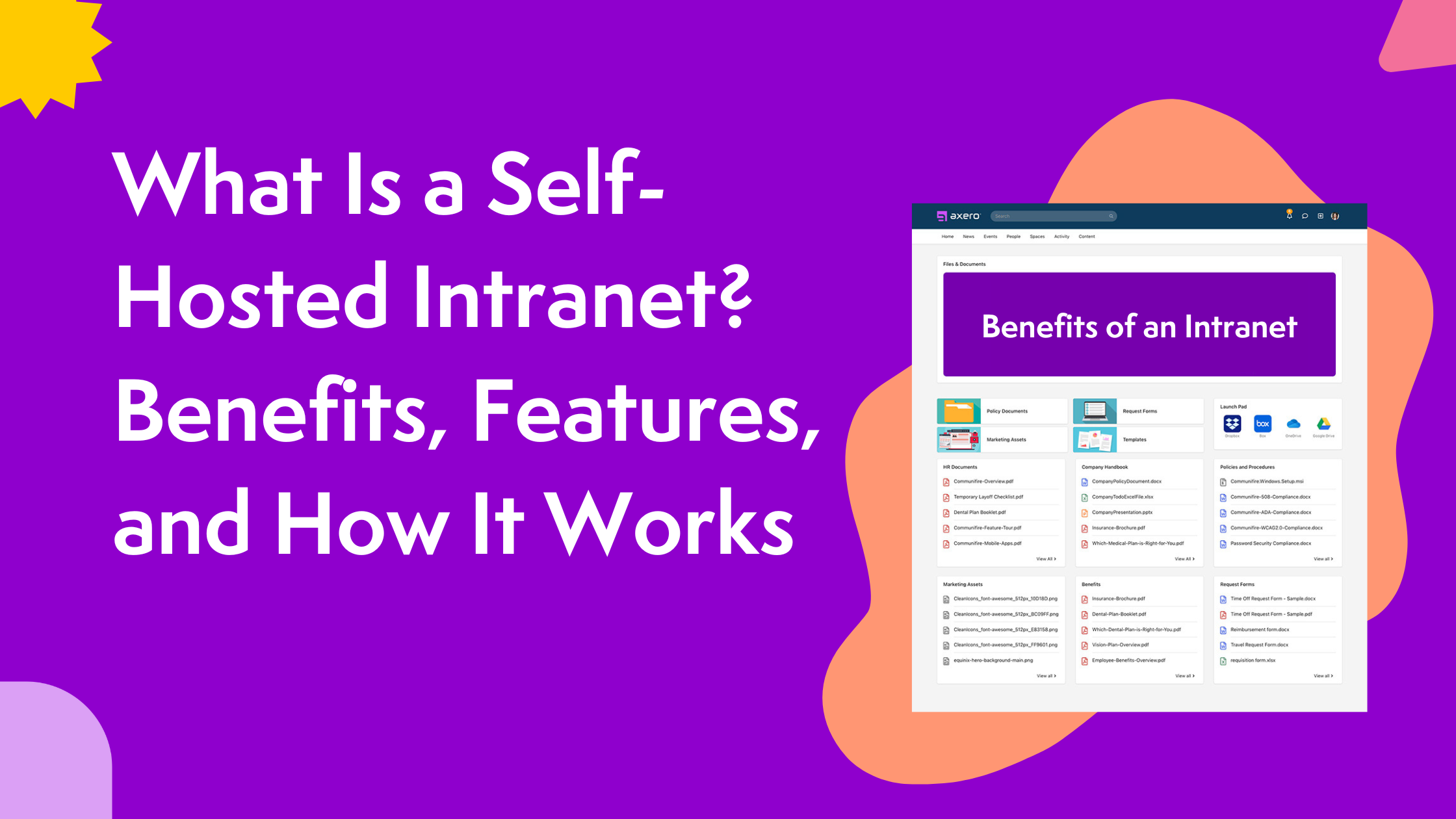
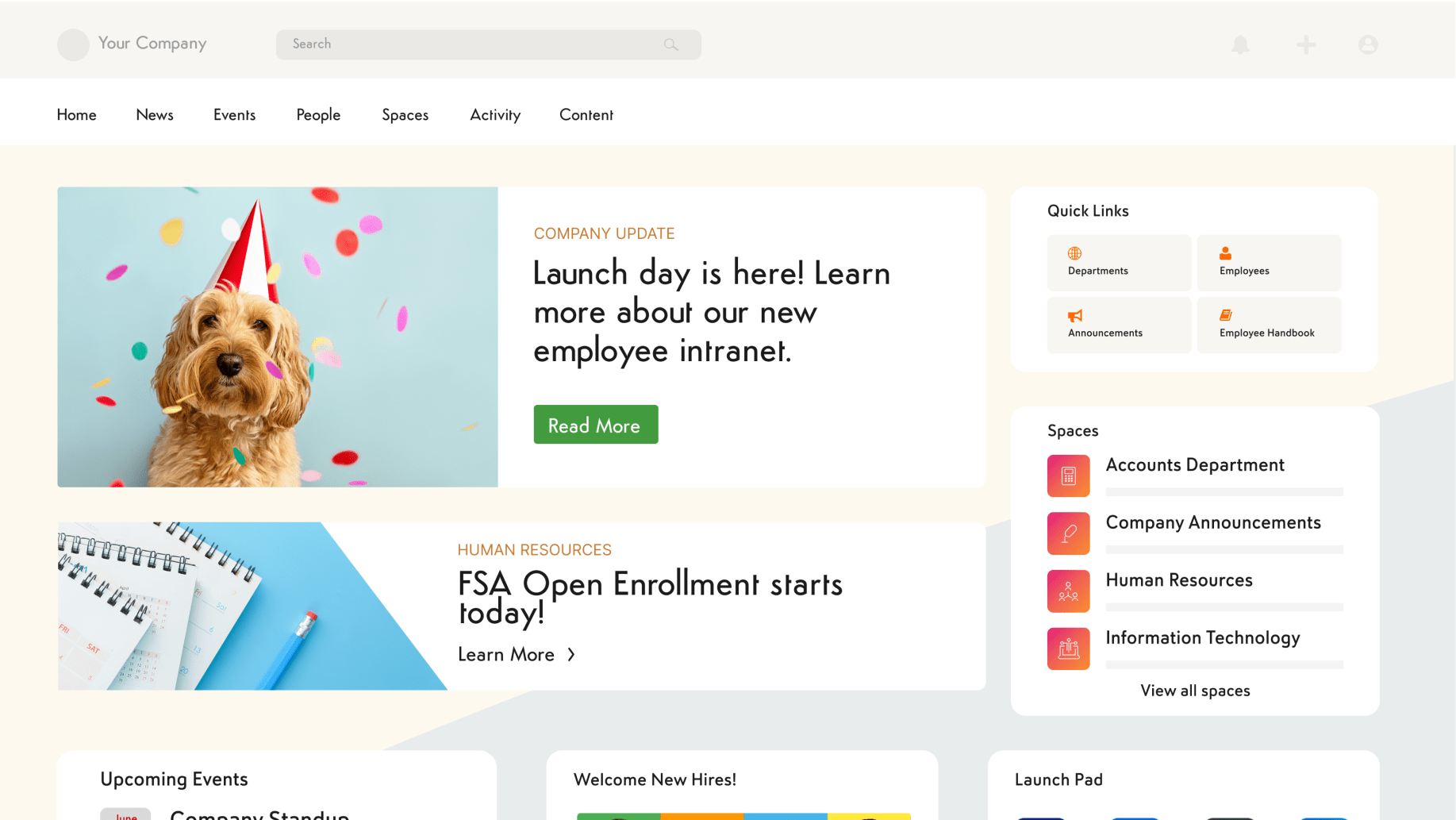







 info@axerosolutions.com
info@axerosolutions.com 1-855-AXERO-55
1-855-AXERO-55


